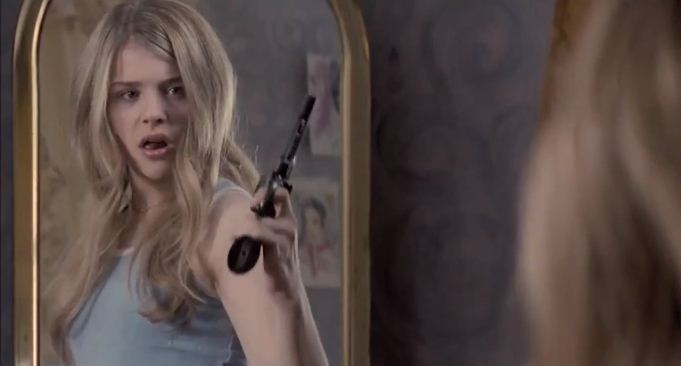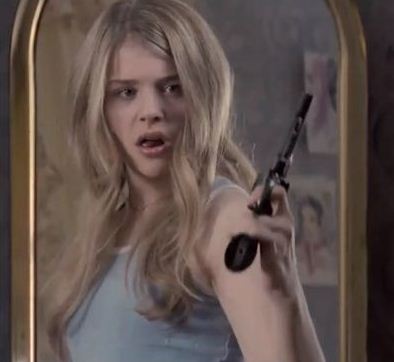
Derick Martini’s 2011 film, Hick, received less than stellar reviews from critics (5% Rotten). I recently decided to give it a chance on Netflix, before I had read any reviews or even knew anything about the film. I really liked it overall. Perhaps watching Hick with a fresh perspective made it easier for me to enjoy, but a part of me doesn’t think that matters.
In this coming-of-age tale in rural Nebraska, Chloë Grace Moretz stars as 13-year old Luli in a very mature role for a young actress. I found her inspiring in that she has an innocent and juvenile look yet is capable of showing a real range of character. She’ll speak a line and you can’t help but roll your eyes and think, “Oh child! You’ve got so much to learn!” And then she’ll surprise you by saying something thought-provoking and grown-up. In Hick, Luli learns to grow up quick as her mother, Tammy (Juliette Lewis), doesn’t seem to give much thought to being a good one. Instead, she spends her time criticizing and throwing insults at Luli’s alcoholic father, Nick (Anson Mount). They even host Luli’s 13th birthday at a local tavern, where someone gives Luli a .45 Smith & Wesson before all hell breaks loose. The bartender gives her a ride home.
Shortly thereafter, Luli is enticed by a commercial about the glitz and glamour of Las Vegas. She races to her room, throws her clothes and that new revolver in a handbag and heads out the door, ready to hitchhike west. On her journey, Luli runs into several oddball characters. There’s the strange cowboy, Eddie (Eddie Redmayne) and the kind, wild Glenda (Blake Lively). The reality of these characters is far-fetched, because they’re more symbolic obstacles of life, not people you would actually ever encounter. A lot of the reviews took the film too literally, discouraging any possible enjoyment from it. When you look at Hick abstractly, where people and chance encounters are symbolic to growing up in Nebraska, Hick has more impact. It seems critics simply missed the point. Many were annoyed by not knowing the film’s time period or were too caught up in the fact that Luli was a 13 year old girl, making some of her interactions with adults uncomfortable. But really, all of that made the movie seem more real. Life is awkward. Growing up is weird and different for everyone, and when a 13 year old girl decides to hitchhike to Vegas, she’s going to end up having some strange encounters. That’s what brings Hick to life. It’s raw and gritty, something that many American girls can actually relate to. I could almost guarantee that. The time period is irrelevant. Hick is about the journey from adolescence to adulthood, about becoming your own person, choosing your own adventure and then actually doing it.
It’s unfortunate that critics can get so caught up in the smallest of details that they miss director Derick Martini’s message, or perhaps more importantly, miss what the viewer can take and apply to her own life. When I watched Hick, I was immediately drawn into Luli’s character. I could see pieces of myself, my friends, my sister, all in one character. Luli is an adventurer and a naive wanderer, imperfect and still finding her way. When it comes down to it, aren’t most of us?

